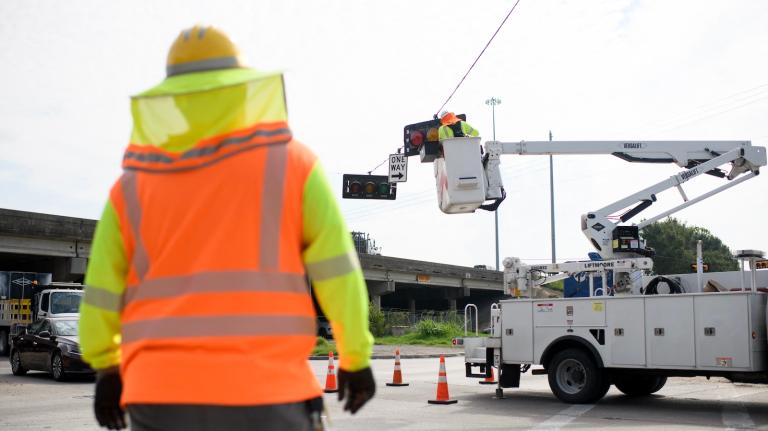
House Natural Resources Committee Chairman Nick Rahall (D-W.Va.) on Wednesday kicked off a series of hearings on offshore drilling, an effort, he says, to determine the best way to proceed after the congressional moratorium on development of the outer continental shelf (OCS) was allowed to expire last October.
Wednesday’s hearing came just a day after Interior Secretary Ken Salazar announced that he is delaying the Bush administration’s plan to move forward on leasing in the OCS and instead is soliciting more public input and scientific data before deciding how to proceed on leasing. With no moratorium in place currently, leases could be sold up to three miles from shore.
Speaking to reporters before the hearing, Rahall said his committee would not pursue a renewal of the moratorium immediately, but would use these hearings to explore options for putting protections in place.
“We want to find out, do people really want drilling as close as three miles off the coasts? What is it going to mean in the way of relieving our dependence on foreign oil? What’s it going to mean in terms of trying to maintain low gas prices for our people?” Rahall said.
But in his comments during the hearing, Rahall said that “the ship may have sailed” on reinstating the OCS ban.
Asked about places Congress might leave open to drilling and what areas need protection, Rahall didn’t give specifics: “There could be areas … that were under the moratorium that we will keep open,” he said. “If there are areas where we can drill responsibly and in an environmentally sound manner, and collect the royalties from that activity, then it could very well be that there are those areas.”
However, Rahall said he supports legislation that would allow states to decide whether or not they want drilling off their coasts.
The first hearing on offshore drilling brought some star power to the issue, spotlighting the views of oceans advocates like Sam Malone Ted Danson, a board member at Oceana, and Philippe Cousteau, a marine conservationist and the grandson of Jacques Cousteau. (PDFs of Danson‘s and Cousteau‘s remarks.)
Both advocated for a full reinstatement of the moratorium on oil and gas development on the OCS, citing the importance of protecting the ocean ecosystems.
Danson told the panel that the costs of drilling are enormous, as an average of 120 million gallons of oil are spilled into the ocean each year, and the overall contribution of the country’s energy portfolio is minimal. “The oil companies are making us a sucker’s offer … They’re asking us to take all the burdens of offshore drilling with just a fraction of the benefits,” said Danson. “We are flirting with disaster by drilling in the OCS.”
Danson also noted that the oceans are feeling the affects of burning oil and other fossil fuels when it comes to acidification and increasing global temperatures. Instead of more drilling, the focus should be on using the offshore renewable resources like wind, tidal, and wave power. “Let’s work with the oceans, not against them,” said Danson.
Rahall asked Cousteau about what sort of protections could be put in place, short of a full-on moratorium, citing ideas like instating a drilling buffer zone off the coasts. Cousteau noted that ecosystems vary around the continental shelf, thus it would be hard define zones to protect all sensitive areas. The same goes for allowing states to decide if they want drilling, said Cousteau, since an oil spill off one coast would likely have effects on surrounding states. “Oil does not respect geographic boundaries,” he said.
Danson echoed that point: “You are not acting alone anymore. We are all in this together, and we need to find a solution together. You can’t say ‘I don’t care if I wreck my backyard,’ because you are wrecking somebody else’s.”
There are two more hearings scheduled on the subject this month — one on Feb. 24 with government officials from affected states, and another on Feb. 25 with representatives from the oil and gas industry.


